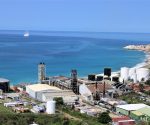A semblance of intervention
 By Hilbert Haar
By Hilbert Haar
How similar is St. Maarten to Curacao? That question becomes relevant after Curacao signed an agreement with the Netherlands about economic cooperation, improving its financial management and its government organization.
Like Curacao, St. Maarten has a weak financial management system, an even weaker tax inspectorate and a fragile tourism-based economy – a one-trick pony if there ever was one.
Curacao asked the Netherlands for help and this has resulted in the agreement Prime Minister Rhuggenaath signed with Dutch Prime Minister Mark Rutte last week.
No matter how you look at that agreement, the result is that the civil service in Willemstad will soon have a host of Dutch experienced functionaries on its hands under the supervision of an – also Dutch – transition manager.
On paper, it looks like Curacao is serious about getting its house in order, though the government flipped out when NOS-correspondent Dick Drayer had the nerve to speak about a “semblance of intervention.” Rhuggenaath emphasizes that it has nothing to do with intervention – in his mind it is a voluntary agreement.
There are however plenty of observers who point out that the agreement feels like an attempt to prevent another instruction from the Kingdom Council of Ministers. In that sense, the agreement is a veiled instruction.
The question is now: is this a good thing or a bad thing? If Curacao’s government recognizes that it cannot solve its problems – in particular its financial woes – on its own, it makes sense to ask for outside help. What makes sense to a prime minister does not necessarily make sense to an individual civil servant – and that is the level where change has to happen.
The Dutch transition manager has to see to it that change does happen. But what if it doesn’t? The agreement does not contain any specifics about his (or her) level of authority. I am curious to see how this is going to work out.
And then there is the matter of money; the agreement does not address this; at least it does not specify who is going to pay for what. Literally: “About costs related to this agreement further agreements will be made in an addendum.”
So while the intention of this agreement is clear, the devil is in the details and of course in its practical execution. If it works, everybody is going to be satisfied; if it doesn’t the agreement will become a source of further irritation in the relationship between Curacao and the Netherlands.
St. Maarten ought to monitor the execution of Curacao’s closer cooperation with the Netherlands and consider whether a similar agreement with Philipsburg is worth thinking about.
My feeling is that the government could use some help right now, given the criticism from The Hague that the civil service is incapable of writing proper projects for the World Bank trust fund, that the country’s financial management has been in a shambles forever and that the collection of taxes remains a mystery to those who are responsible for it.
###
Related article:
Curacao’s agreement with the Dutch: heaven or hell?

























